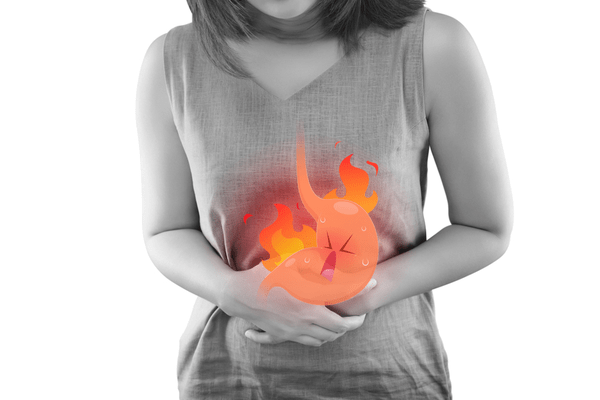Dealing With Indigestion
7 Tips for Dealing With Indigestion
Suffering from indigestion? Most people have indigestion at some point in their lives. Indigestion, also called dyspepsia, is defined as persistent or recurrent pain or discomfort in the upper abdomen. The symptoms of indigestion can include abdominal pain, gas, belching, nausea, vomiting, or burning in the upper abdomen or stomach. Here are 7 tips for dealing with indigestion.

1. Keep a food diary. The best way to treat indigestion is to prevent it by avoiding the foods that seem to cause indigestion. Keep a food diary to work out what drinks and foods are triggers for you. Writing down what you ate and the time you ate it can help you deduce what it is that’s causing your symptoms. When possible limit these triggers – common ones include chocolate, caffeine, and spicy food.
2. Eat less. Overeating and late-night meals are the top two triggers that affect many people with indigestion. Eating five small meals per day can help. Breaking down your daily food intake into five small meals makes lighter work for your digestive system. It’s also a good idea not to eat right before bed.
3. Eat slowly. It’s not just what you eat that can cause indigestion; it’s also how quickly you eat. Sit down when you eat your meals. Take your time, chew thoroughly, and give yourself at least 20 minutes before you carry on with your day. Try to avoid lying down too soon after eating.
4. Limit caffeine. If you drink too much caffeine, you may develop indigestion as a side effect. Cut back on your daily fix to see if that helps reduce your symptoms. Caffeine affects your central nervous system and increases stomach acid production. According to Michigan State University, people who drink too much caffeine can develop abdominal pain, heartburn, diarrhea, belching, nausea, and vomiting.
5. Exercise. Exercise can help promote healthy digestion. A recent study shows that exercise can help reduce many digestive problems. In one study, scientists found a link between lack of exercise, obesity, abdominal pain, and symptoms of irritable bowel syndrome. Regular cardiovascular exercise like walking and cycling also helps strengthen abdominal muscles. Don’t exercise with a full stomach. Do it before a meal or at least one hour after you eat.
6. Beware of air. Swallowing too much air while eating can cause indigestion. You can help avoid that by chewing with your mouth closed and talking less while eating. You may need to avoid sucking on hard candy or chewing gum, which can lower the amount of air you swallow. If heartburn or acid reflux makes you swallow more frequently, antacids may help.
7. See your doctor. If your indigestion lasts longer than 2 weeks, you should see a gastroenterologist. Treatment for indigestion depends on the cause and may include lifestyle changes, medications, and psychological therapies. If stress is causing your symptoms, your doctor may recommend ways to help you reduce your stress, such as relaxation exercises, meditation, or counseling.
Indigestion can significantly diminish your quality of life. Stand up to indigestion and start enjoying life again. Find a board certified gastroenterologist near you and schedule a consultation. Treatment for indigestion will ease your pain and help you get back to a happy and healthy life!



